Clark Groves: Everything you need to know about the bookie who was ‘King of East Belfast’
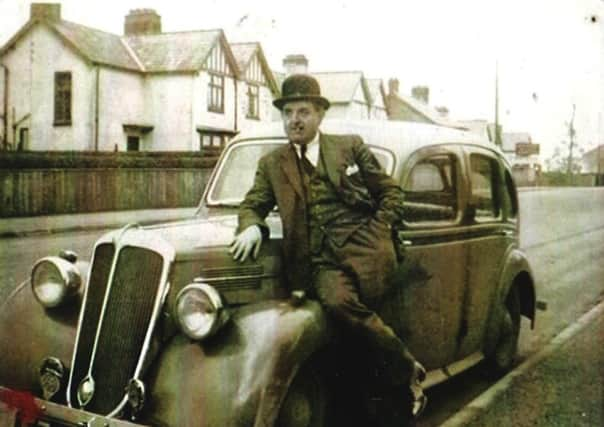

The life and deeds of the east Belfast man, who is said to have “married them and buried them” on the Newtowards Road in the 1940s, features in a new play written by the son-in-law of his grandson.
Clark Groves Jnr, now 76, was a boy when his grandfather introduced him to the world of a bookmaker, while at the same time warning him not to follow in his footsteps.
Advertisement
Hide AdAdvertisement
Hide AdExplaining how the play ‘The King of East Belfast’ came about, Clark said: “It was me every so often talking to Stephen (Beggs – his son-in-law) about my grandfather, my early life with him. I lived with him from I was three when my father died until I was 13. I was extremely close to him.
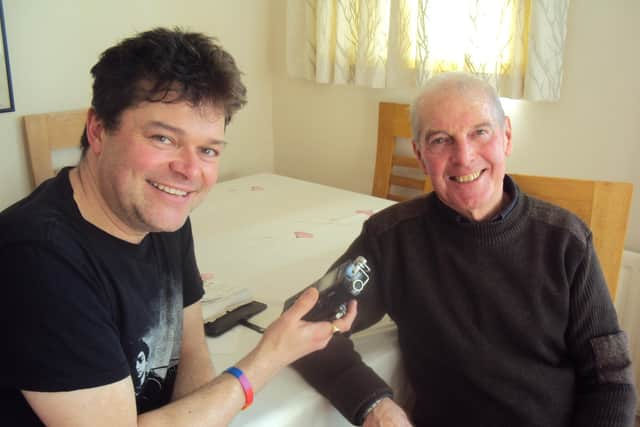

“My grandfather used to drag me about with him when I was really young, I was in and out of pubs and clubs, you name it.
“What really used to strike me was the deference people paid him. The men nodded their head and tipped their cap to him, the ladies would say ‘Mr Groves’, and they didn’t quite curtsey but it wasn’t far off it. He was a big man in his area, very respected.
“I don’t think it was because of his profession. Bookmakers then were paid the same level of respect as they are now. I think it was the man he was, I really do.”
Advertisement
Hide AdAdvertisement
Hide AdHe said: “The story goes that he buried them and he married them on the Newtownards Road, in so much as when they hit a blind wall and didn’t have the money to say fund a funeral or a wedding, he would lend them money. But he never really got round to getting it back.”
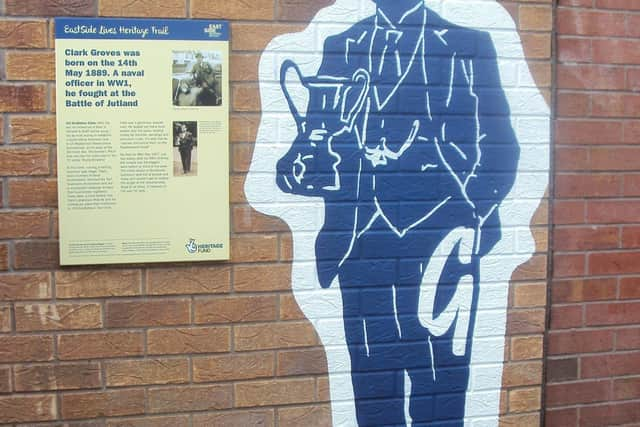

Clark Groves was born on May 14, 1889.
As a naval officer in World War One he fought at the Battle of Jutland.
After the war he worked as a fitter in Harland & Wolff before using his demob money from the Navy to establish a bookmaking business at 14 Manderson Street (since demolished), at the back of the Old Clock Bar.
Clark Jnr said at times to begin with his family could be very poor – as a bookie you could be cleaned out. Later they ended up being quite well-off in middle-class Earlswood Park where they were looked down on by their neighbours as his grandfather’s work was seen as ‘disreputable’.
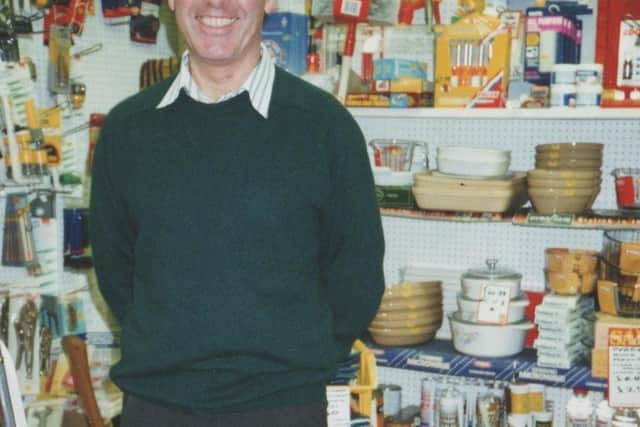

Advertisement
Hide AdAdvertisement
Hide AdAt the time when Clark Snr set up his pitch running a betting business was illegal. Along with a number of other bookmakers he founded the Turf Guardians Association and led a successful campaign to have their businesses legalised. Years later, a local bookie told his grandson that he and his colleagues owed their livelihoods to ‘Old Godfathers’ like Clark.
Clark said: “The betting then would have been the dogs and the horses. Dunmore was the dogs, and there was horse racing at Royal County Down and the Maze. It was more the races across the water that people bet on. A lot of the races were on the radio, I think they might have had a service that broadcast for the bookies.”
He recalled the pitch from where his grandfather operated close to where CS Lewis Square is now located: “At some point in the 1920, 1930s, he bought the premises in Manderson Street. It was terrace housing – a cul-de-sac off Holywood Arches. The houses backed onto the old train line to Newtownards and Donaghadee.
“If you went up to it all you would see was the front door of a small terraced house, but all the inside had been knocked out and it was a large tin hut out the back. There were boards for chalking up the racing, booths for placing bets, speakers hooked up to the radio to hear the races. It was very Peaky Blinders.
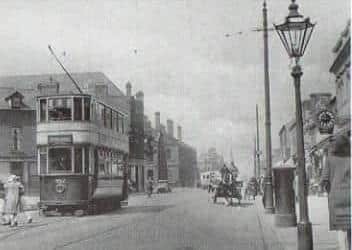

Advertisement
Hide AdAdvertisement
Hide Ad“It was very important for a bookmaker’s pitch to be located very close to a pub – drinking encouraged bets, the men ‘sassled’ back and forward between the two.
“His pitch in Manderson Street was beside the Clock Bar, they ran out the back door of the bar and what was 20 feet down into my grandfather’s pitch.”
When his grandfather died, another son, also Clark, took over the business followed by his son Billy before its licence was taken over by a bookmakers chain.
The Groves family had other bookies pitches in Belfast. Clark said: “My uncle Nelson he had a pitch on the Dubln Road. As far as I know there was another one on the Donegall Road.
Advertisement
Hide AdAdvertisement
Hide Ad“Despite everything he showed me, my grandfather brought me up not to go into the bookmaking business.
“For all that he did, he could see that it wrecked a lot of people’s lives.
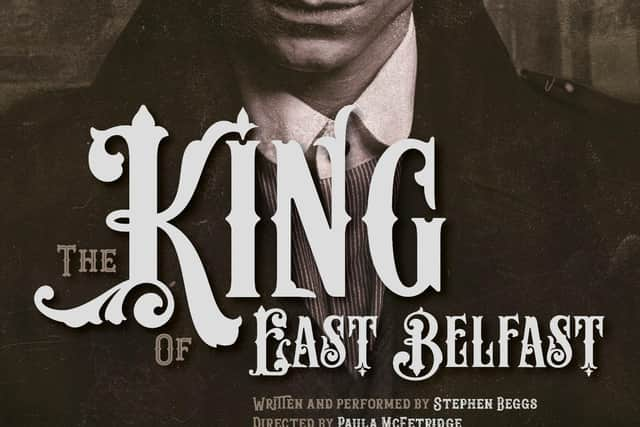

“I had 38 years in the hardware business up at Ballyhackamore – Groves Hardware. I shut 16 years ago when I was 60. It’s a chemist shop now in the middle of a lay-by.”
Clark, who lives with his wife in Ballyholme, said: “I read the script for the play. I thought it was remarkable. My wife teared up when she read it. She thought it was terrific.
Advertisement
Hide AdAdvertisement
Hide Ad“The main character is my grandfather and his nature is reflected, the rest is fictional. There’s myself for instance and I have a best friend who’s the son of one of the workers in the pitch. That is total fiction.
“I had said to Stephen how my grandfather warned me away from becoming a bookmaker and he has woven into the story what can go wrong when you become addicted to gambling.”
Clark recalled how his grandfather was almost treated like royalty in the area: “I was a schoolboy, I had one of those leather schoolbags you put on your back in those days. I was watching a rugby match. One of my mates jumped on me and bent me right back over the bag like a bow. I couldn’t get up, I was at a 90 degree angle.
“I finally got home and my grandfather put me in the car and drove me down to Bobby McGregor’s – the local back, leg and knee fixer.
Advertisement
Hide AdAdvertisement
Hide Ad“It was in Ravenscroft Avenue, a big three storey terraced house. They were queuing out into the street. My grandfather just marched past everybody, knocked on the door, walked in.
“Bobby McGregor said, ‘yes, Mr Groves’. He pushed whoever he was dealing with to the side. He put his hand underneath my chin and ran two fingers down my back and went whack and I walked out.
“The point of the matter was nobody batted an eyelid that he went to the head of the queue.”
Clark Groves was the sponsor of the Clark Groves Cup, which was an annual summer tournament played at a ground known as ‘The Hen Run’, the nearby home of Dundela FC.
Advertisement
Hide AdAdvertisement
Hide AdHe died on May 28, 1957, just two weeks after his 68th birthday. His funeral was the biggest seen before or since in the area. The trolley buses to Dundonald Cemetery were full of people and those who couldn’t get on walked the length of the Newtownards Road to be there.
Clarke Jnr described his grandfather as a “dreadful practical joker”.
He told of one such prank: “There used to be a pub called the Stormont Inn, opposite the Strand Picture House.
John Woods was the guy who owned the Stormont Inn. My grandfather built a greenhouse which he referred to as The Conservatory. He put tomato plants in it.
Advertisement
Hide AdAdvertisement
Hide Ad“When the first tomato plants came in John Woods sneaked into the conservatory and tied tomatoes to the bushes with thread. My grandfather came out and came shooting back in all excited about these tomatoes and ran into my grandmother shouting about the tomatoes that had grown so quickly. She told him to catch himself on.
“Then he discovered it was John Woods. He then had to get him back.
“He had a grand opening of the conservatory. He invited all his friends round and there was a lot of drink taken. He told them all to go to the Stormont Inn the next day to complain about their hangovers because he hadn’t invited the owner John Woods.
“That’s part of the man.”
Presented in partnership with the EastSide Arts Festival, ‘The King Of East Belfast’ has been written by and stars local actor Stephen Beggs, who found his inspiration very close to home.
Advertisement
Hide AdAdvertisement
Hide AdStephen is a Belfast actor, writer, theatre director and producer. He was manager of Bruiser Theatre Company from 2002-2013 and has been chair of Tinderbox Theatre Company since December 2019.
He said: “My father-in-law is called Clark Groves and ‘The King of East Belfast’ is based on the true life story of his grandfather, also called Clark Groves.
“Before gambling was made legal in Northern Ireland, Clark Snr was a legendary east Belfast bookmaker who strived to be both a successful bookie and a good man. Through his generosity to local people from what he called ‘this deadly business’, it was said that Clark Snr ‘married and buried them on the Newtownards Road’.
“I’ve been really fascinated by the stories I have heard about Clark Snr from my family for many years and I’m looking forward to breathing life into a forgotten period in the history of east Belfast.”
Advertisement
Hide AdAdvertisement
Hide AdThe King of East Belfast will be a live, socially distanced performance in Connswater Shopping Centre, with a maximum audience of 22 people per show.
Measures which will be available to ensure audience and performer safety will include masks, sanitiser, allocated seating, restricted numbers and regulation spacing.
The King of East Belfast is being directed by Paula McFetridge from Kabosh, who explains some of the creative thinking behind the show: “At Kabosh we are always interested in looking at local politics and history from a human perspective and that is why we were so excited when Stephen told us about the story of Clark Groves Snr.
“As well as being a larger than life character himself, Clark’s story also gives us a unique insight into how society operated back in 1940s east Belfast.
Advertisement
Hide AdAdvertisement
Hide Ad“We have been collaborating closely with Stephen for the past 10 months to bring ‘The King of East Belfast’ to audiences.
“Site specific work is very important to us and staging the show in the Connswater Shopping Centre – the site of the former Belfast Ropeworks, where many of Clark’s customers would have worked – gives it a special resonance.”
Welcoming Kabosh’s return to live performance, Caoileann Curry-Thompson, drama and dance officer from Arts Council of Northern Ireland (ACNI) said: “‘The King of East Belfast’ promises to be a treat and a triumph from one of our most accomplished and versatile theatre artists, Stephen Beggs, with the help of the hugely experienced and successful Kabosh.
“Stephen has been working on this project through ACNI support for several years, interrogating and bringing to life characters, dilemmas and worlds from his own family history.
Advertisement
Hide AdAdvertisement
Hide Ad“The shared innovation and humanity of Stephen and Kabosh will bring us something very special here – elevating and celebrating the everyday and the local, and finding the extraordinary in the ordinary.
“Stephen is a vector for the creativity and catharsis of live performance; he has thrilled, moved and astounded audiences for decades. We have waited a long time to get back to live performance, and I can think of no artist I would rather return us there than Stephen Beggs, and no better company than the ever-inventive Kabosh. We wish them all the best with the production.”
The 45-minute show will be performed in a unit at Connswater Shopping Centre at 8pm from August 7 to 9 and again from August 12 to 16, with 2.30pm matinees on August 12 and 15, as part of the EastSide Arts Festival.
Tickets, £10, are available via www.eastsidearts.net